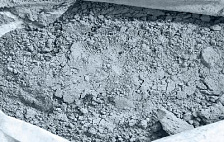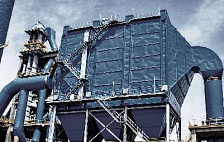CEMBUREAU, the European Cement Association, welcomes the publication of the European Commission’s Renovation Wave — a strategy to improve the energy performance of buildings. The strategy will prioritise action in three areas: decarbonisation of heating and cooling; tackling energy poverty and worst-performing buildings; and renovation of public buildings such as schools, hospitals and administrative buildings. The Commission proposes to break down existing barriers throughout the renovation chain — from the conception of a project to its funding and completion — with a set of policy measures, funding tools and technical assistance instruments. Concrete, which is the cement industry’s end product, offers key advantages for deep renovation in terms of energy savings, thermal mass, flexibility, insulation, resilience and recarbonation.
“The renovation wave provides the EU with a unique opportunity to make a difference in citizens’ lives, and the cement industry is fully ready to play its role” said Koen Coppenholle, CEO of CEMBUREAU.
“By focusing on life-cycle approaches, circularity and ambitious building energy targets, the European Commission offers a convincing view of a decarbonised building stock”, said Mr Coppenholle. “Concrete, which was at the heart of the Bauhaus movement, is critical for European buildings and everyday infrastructure such as schools and hospitals. Thanks to its capacity to absorb CO2 during its lifetime and end-of-life, its recyclability and its thermal mass properties, it plays a decisive role in decarbonising European buildings”.
“We now look forward to ambitious policy proposals based on the principle of material neutrality and full life-cycle approaches”, said Mr Coppenholle. “In this respect, the preference expressed by policymakers for one category of construction materials — nature-based solutions — over others without any scientific substantiation, is disconcerting and worrying. Concrete, as a fully local product, can absolutely compete with nature-based materials when considering life-cycle emissions and the full value chain impacts such as sourcing or transportation”.
As highlighted in its position paper on the renovation wave, CEMBUREAU supports an approach in which:
- Building renovation is not limited to energy efficiency, it should include a focus on material efficiency, the circular economy and resilience;
- Throughout the regulatory framework, attention for a cross-material life cycle assessment at the level of the building should be one of the key policy drivers;
- A renovation wave focuses on deep renovation and considers rebuild when it is the best environmental outcome.
Buildings are responsible for about 40 % of the EU's energy consumption, and 36 % of greenhouse gas emissions from energy. But only 1 % of buildings undergo energy efficient renovation every year, so effective action is crucial to making Europe climate-neutral by 2050. With nearly 34 million Europeans unable to afford keeping their homes heated, public policies to promote energy efficient renovation are also a response to energy poverty, support the health and wellbeing of people and help reduce their energy bills.







